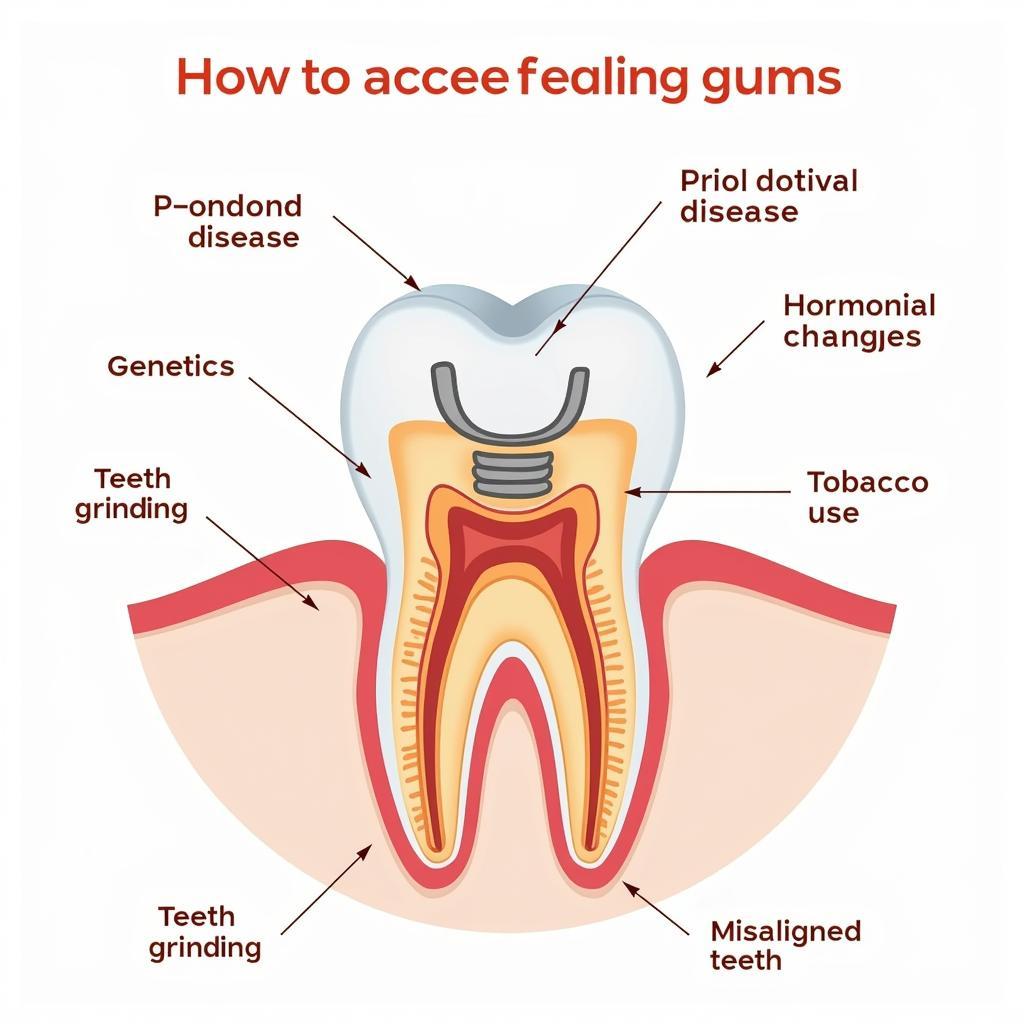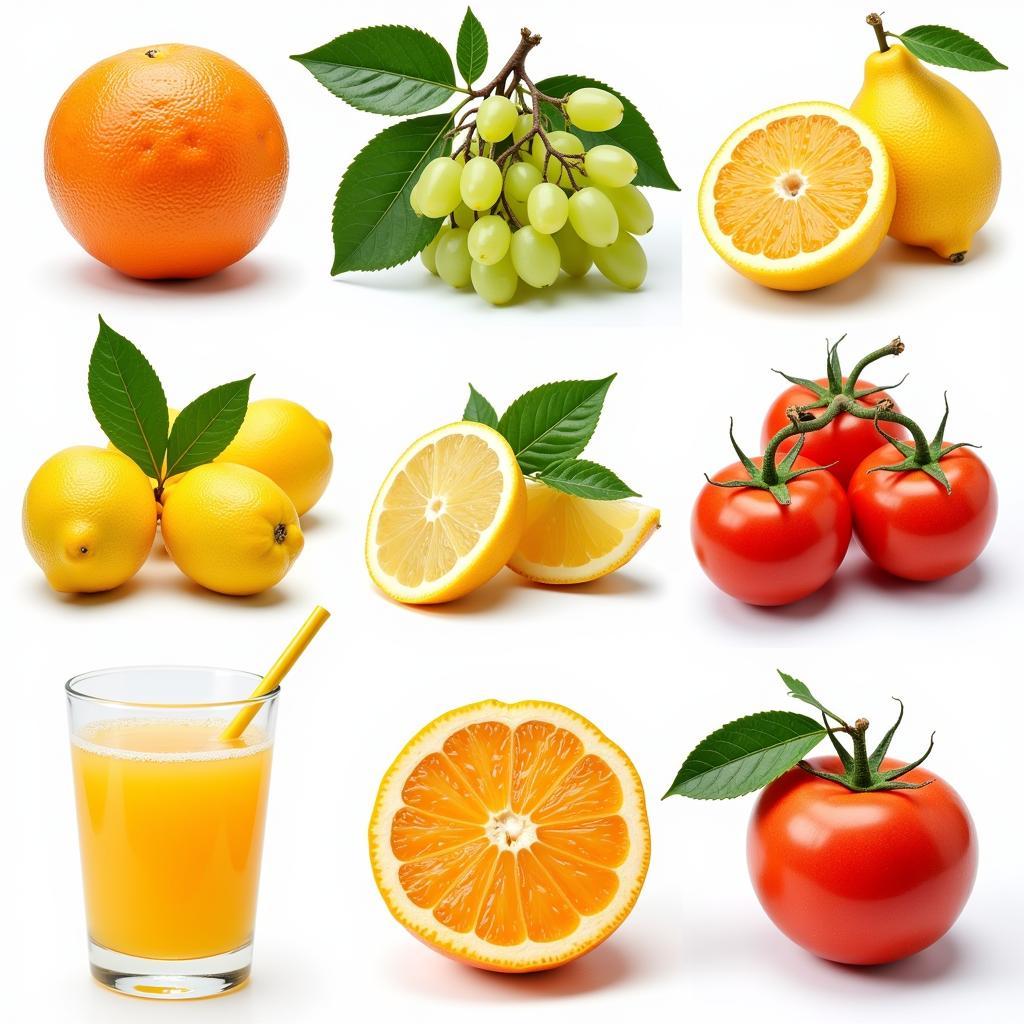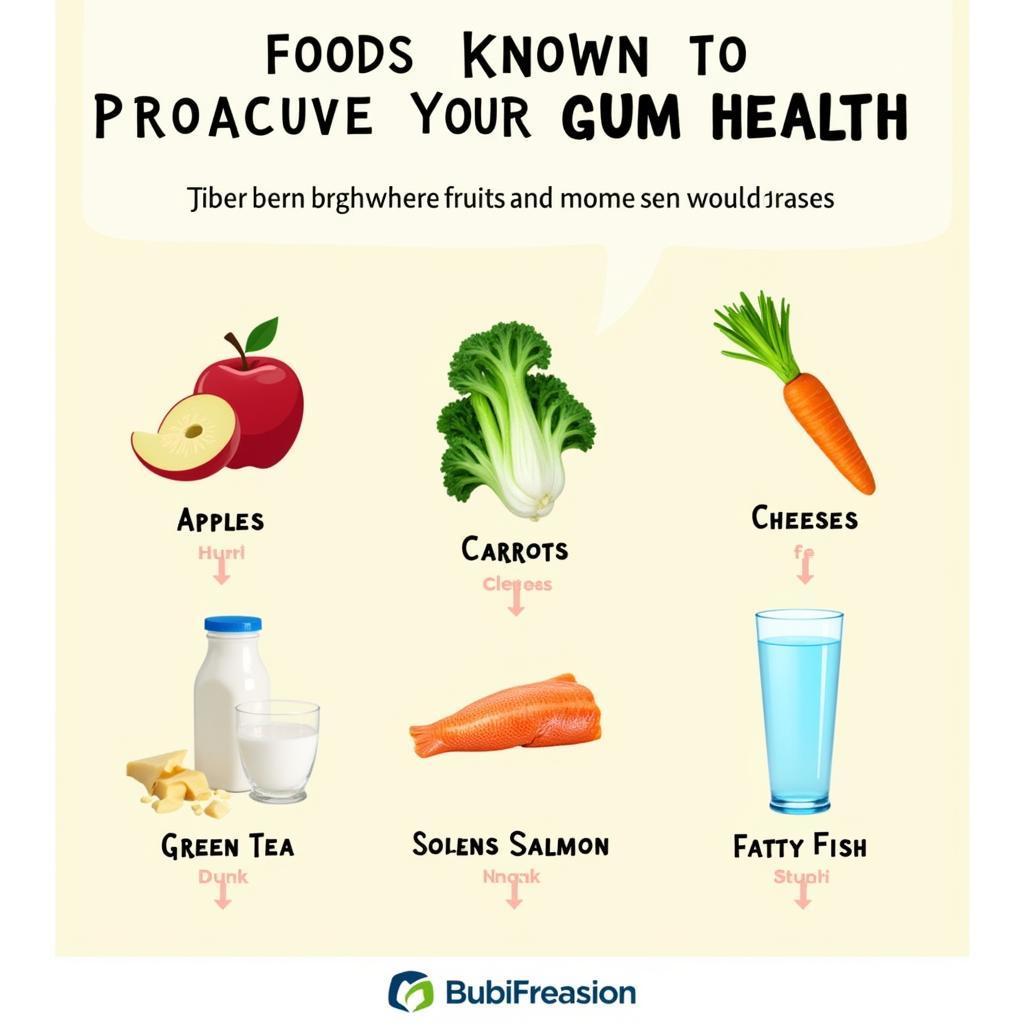Receding gums can be a real pain, both literally and figuratively. This common dental issue not only affects your oral health but can also impact your confidence. While several factors contribute to gum recession, your diet plays a significant role. What you eat can either exacerbate the problem or help maintain healthy gum tissue. Knowing which Foods To Avoid With Receding Gums is the first step towards a healthier, brighter smile.
What Causes Receding Gums?
Before we delve into the foods to avoid, let’s understand what causes receding gums in the first place. Gum recession occurs when the gum tissue surrounding your teeth pulls back or wears away, exposing the tooth’s root. This process can lead to sensitivity, pain, and even tooth loss if left untreated.
Common causes of receding gums include:
- Periodontal disease: This gum infection damages the gum tissue and bone supporting your teeth.
- Aggressive brushing: Brushing too hard or using a hard-bristled toothbrush can wear down gum tissue.
- Genetics: Some people are genetically predisposed to gum disease and recession.
- Hormonal changes: Fluctuations in hormone levels, particularly during pregnancy or menopause, can make gums more sensitive and susceptible to recession.
- Tobacco use: Smoking or chewing tobacco weakens the immune system, making it harder for your body to fight off gum infections.
- Grinding or clenching your teeth (bruxism): This puts excessive pressure on your teeth and gums, leading to recession.
- Misaligned teeth or a bad bite: These can put uneven pressure on your gums, causing them to recede.
 Causes of Receding Gums
Causes of Receding Gums
The Link Between Diet and Gum Health
Just like the rest of your body, your gums need proper nourishment to stay healthy. A balanced diet rich in vitamins, minerals, and antioxidants helps strengthen gum tissue and fight off infections. On the other hand, a diet high in sugary, acidic, and processed foods can create an environment in your mouth that promotes bacterial growth and inflammation, leading to gum disease and recession.
Foods to Avoid with Receding Gums
If you’re struggling with receding gums, avoiding certain foods can significantly improve your gum health. Here’s a closer look at the culprits:
1. Sugary Treats and Drinks
Sugar is a feast for harmful bacteria in your mouth. When you consume sugary foods or drinks, these bacteria produce acids that attack your tooth enamel and irritate your gums, increasing your risk of gum disease and recession.
Foods to limit or avoid:
- Candy
- Cookies
- Cakes
- Pastries
- Sugary drinks like soda and fruit juices
2. Acidic Fruits and Beverages
While fruits are generally considered healthy, some are highly acidic. Citrus fruits, in particular, can erode tooth enamel and irritate sensitive gums, potentially worsening gum recession.
Foods and drinks to watch out for:
- Oranges
- Lemons
- Grapefruits
- Tomatoes
- Orange juice
- Lemonade
Tip: Enjoy acidic fruits in moderation and rinse your mouth with water after consuming them to neutralize the acid.
 Acidic Foods and Drinks to Limit with Receding Gums
Acidic Foods and Drinks to Limit with Receding Gums
3. Sticky and Chewy Foods
Sticky foods like caramel, toffee, and dried fruits cling to your teeth and gums, providing a breeding ground for bacteria. These foods can also pull on existing dental work, potentially exacerbating gum recession.
Foods to be mindful of:
- Caramel
- Toffee
- Gummy candies
- Dried fruits (especially those with added sugar)
- Chewing gum (choose sugar-free options)
4. Crunchy and Hard Foods
While crunching on raw vegetables is good for your gums, hard and crunchy snacks can be problematic. Biting down on hard foods can chip your teeth, damage existing dental work, and irritate your gums, potentially worsening recession.
Foods to limit:
- Ice
- Hard candy
- Popcorn (especially unpopped kernels)
- Nuts
- Pretzels
5. Processed Foods
Processed foods often contain refined carbohydrates, added sugars, and unhealthy fats, all of which can contribute to inflammation throughout your body, including your gums.
Foods to reduce or avoid:
- White bread
- Pastas made with refined flour
- Processed meats
- Fast food
- Packaged snacks
6. Alcohol
Excessive alcohol consumption can dry out your mouth, reducing saliva production. Saliva plays a vital role in washing away food particles and neutralizing acids, so a dry mouth is more susceptible to bacterial growth and gum disease.
Tip: If you choose to consume alcohol, do so in moderation and stay hydrated by drinking plenty of water.
Foods That Promote Gum Health
Now that you know what to avoid, let’s focus on what you should be eating for optimal gum health:
- Fiber-rich fruits and vegetables: Crunchy fruits and vegetables like apples, carrots, and celery help clean your teeth and stimulate saliva production.
- Dairy products: Milk, cheese, and yogurt are rich in calcium and vitamin D, essential nutrients for strong teeth and bones.
- Green tea: Green tea contains antioxidants that can help reduce inflammation and fight gum disease.
- Foods rich in omega-3 fatty acids: Fatty fish like salmon, tuna, and mackerel are excellent sources of omega-3s, which have anti-inflammatory properties.
- Water: Staying hydrated is crucial for overall health, including your gums. Water helps flush away food debris and bacteria, keeping your mouth clean.
 Foods that Promote Gum Health
Foods that Promote Gum Health
Expert Insight
“Maintaining a healthy diet is crucial for overall health, and your gums are no exception,” says Dr. Emily Carter, a renowned periodontist. “By avoiding foods that can damage your gums and incorporating nutrient-rich options into your diet, you can significantly reduce your risk of gum disease and recession, preserving your beautiful smile for years to come.”
Conclusion
Taking care of your gums is essential for a healthy and confident smile. By understanding which foods to avoid with receding gums and making smart dietary choices, you can take proactive steps towards improving your oral health. Remember, a healthy mouth is a happy mouth.
If you have concerns about receding gums or any other dental issues, consult with your dentist or a qualified dental professional. They can provide personalized advice and treatment options to address your specific needs.
FAQs
1. Can receding gums grow back?
Unfortunately, receding gums cannot grow back naturally. However, various treatments can help stop or slow down the progression of gum recession, depending on the severity of the condition.
2. Is it normal to have some gum recession as I age?
While some degree of gum recession is common with age, it’s not inevitable. Maintaining good oral hygiene and a healthy lifestyle can significantly reduce your risk.
3. What are the treatment options for receding gums?
Treatment for receding gums varies depending on the cause and severity of the condition. Options include scaling and root planing, gum grafting, and pinhole surgical technique.
4. How often should I visit my dentist if I have receding gums?
If you’re experiencing gum recession, it’s essential to visit your dentist at least twice a year, or more frequently as recommended, for checkups and cleanings.
5. Can I reverse receding gums with home remedies?
While some home remedies can promote gum health, they cannot reverse gum recession. It’s crucial to seek professional dental care for effective treatment.
Need Help?
Do you have more questions about receding gums or need personalized advice? Contact us at Phone Number: 02437655121, Email: minacones@gmail.com Or visit us at: 3PGH+8R9, ĐT70A, thôn Trung, Bắc Từ Liêm, Hà Nội, Việt Nam. Our dedicated customer support team is available 24/7 to assist you.